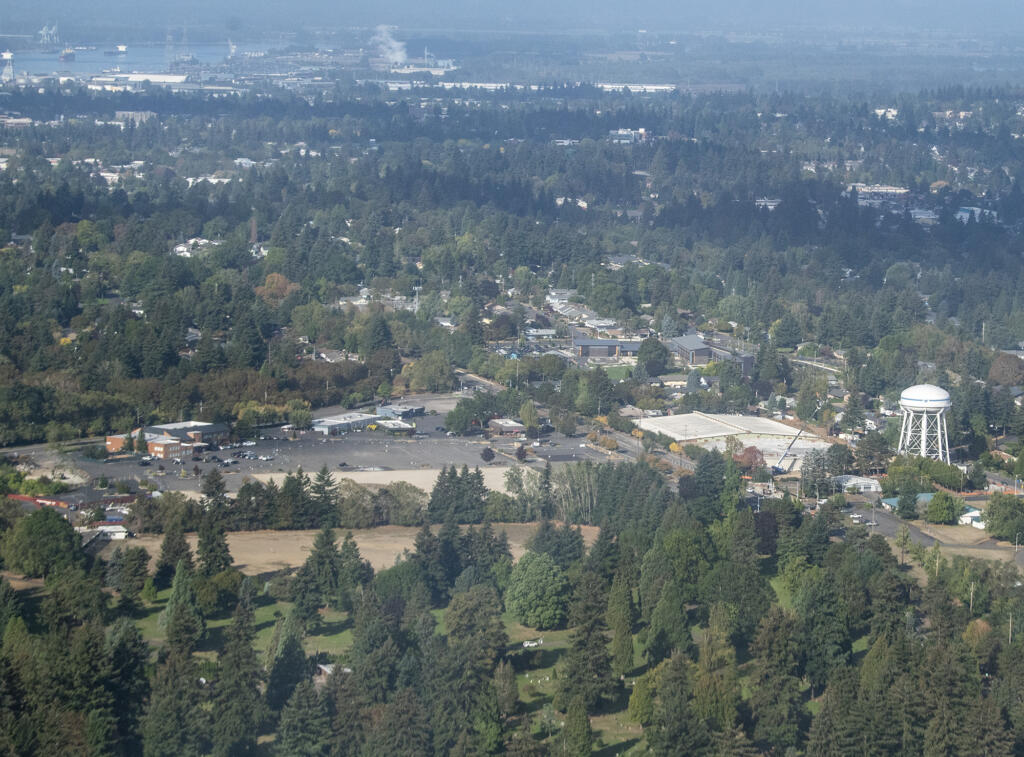Washington state has raised an estimated $1.8 billion through the sale of allowances to polluting businesses at carbon auctions this year.
The state Department of Ecology announced Wednesday the results of its last quarterly auction of the year. It marked the completion of the first year of a program that’s intended to put the state on a 27-year path toward little to no greenhouse gas emissions.
In all, more than 41 million carbon allowances have been sold. Each allowance represents one metric ton of emissions from the state’s biggest greenhouse-gas polluters.
The carbon market is the centerpiece of the state’s Climate Commitment Act, requiring the state’s biggest polluting businesses to reduce their emissions or purchase allowances to cover them. Over the course of seven three-year periods, state officials will reduce the number of allowances sold, ramping up pressure on the industries to lower their emissions.
The state is working to cut emissions nearly in half by 2030, and become a mostly carbon-free state by 2050, in an effort to meet the intent of the Paris Agreement, which sets out an international framework to limit global warming to 1.5 degrees Celsius (2.7 degrees Fahrenheit).
While one state’s emissions cap will not fix the climate crisis alone, some hope Washington’s program will serve as a beacon for others to follow.
“Our Climate Commitment Act and other climate policies have been described as the gold standard and we should implement that effectively so other states follow and broaden the national movement to meet carbon-reduction targets called for in international agreements,” said Michael Mann, executive director of Clean & Prosperous Washington, a coalition of groups that support the law.
The revenue in the program is intended to be invested in projects that help reduce climate-warming emissions, such as clean energy projects led by tribal nations, air quality monitoring in communities near polluting industries and electrifying transit. Some of the dollars will go to Washingtonians, to help them buy heat pumps, electric bikes and cars, among other things.
So far, — largely for public transit and state transportation — have received $76.2 million from the state auction revenue. These projects likely reduced emissions by at least 191,092 metric tons, according to the state.
Washington state’s greenhouse-gas emissions in 2019 reached their highest level since 2007: 102 million metric tons. It was a 7 percent increase from 2018, and 9 percent higher than 1990 levels.
Communities of color and families with lower incomes largely bear the brunt of the state’s largest polluting industries. In Seattle, for example, a study funded by the Environment Protection Agency found in 2013 that residents of the Duwamish Valley on average are sicker and die younger than those living in other parts of Seattle.
A 2017 study partially funded by the EPA found that among children, more exposure to higher levels of fine particulate matter is strongly associated with an increased risk of asthma and death. In 2019, UW researchers found emissions from planes are disproportionately polluting communities near Seattle-Tacoma International Airport with these ultrafine particles.
Gov. Jay Inslee this week proposed an additional $941 million in investments in projects intended to reduce emissions in his 2024 supplemental budget. It would add to the $2.1 billion already allocated from the carbon auction revenue this year and next.
“The CCA’s declining cap forces the oil and gas industry and other polluters to clean up their act,” Mike Faulk, a spokesperson for the governor, wrote in an emailed statement. “We are recycling those pollution payments into investments that give our kids cleaner air, help Washington families get affordable clean energy, and create jobs across our state, rather than sending that money out of state.”
The fledgling carbon market quickly outpaced early revenue estimates, drawing ire from oil and gas industry officials and Republican lawmakers.
The law now faces a repeal effort backed by opponents who blame the law for high gas prices at the pump. Opponents of the law said they have submitted enough signatures for the initiative to appear on the November 2024 ballot.
Officials are pursuing merging Washington’s carbon-pricing market with another operated by California and Quebec. This, if successful, could help settle the high prices of pollution, but relief would take time. Assuming Washington, California and Quebec agree to merge their markets, the earliest the process could be finished is 2025, according to state officials.
Members of the state Environmental Justice Council have cautioned pursuing linkage until more is known about how the larger market would affect efforts to make meaningful pollution reductions in Washington.
There were 58 qualified bidders in the latest auction, including oil companies like BP and Marathon, methane gas pipeline operators and utilities such as Gas Transmission Northwest and Cascade Natural Gas, as well as public universities, including Washington State University.
Businesses covered by the program — those emitting more than 25,000 metric tons of greenhouse gases per year — do not need to turn in any allowances to the state to comply with the law until November 2024. Then, one-third of 2023 emissions are due. The rest of allowances for the first compliance period are not due until November 2027.
Some polluters, like natural gas utilities and oil refineries, initially get a generous portion of their allowances free, but are required to buy more if they plan to release greenhouse gases above the allotted levels.
Utilities that receive allowances at no cost may consign them for sale at the state’s auctions. The revenue from those allowances must be used for the benefit of ratepayers. More than $376 million has been raised in consigned revenue, bringing the total raised from allowances sold at auction to $2.2 billion.



